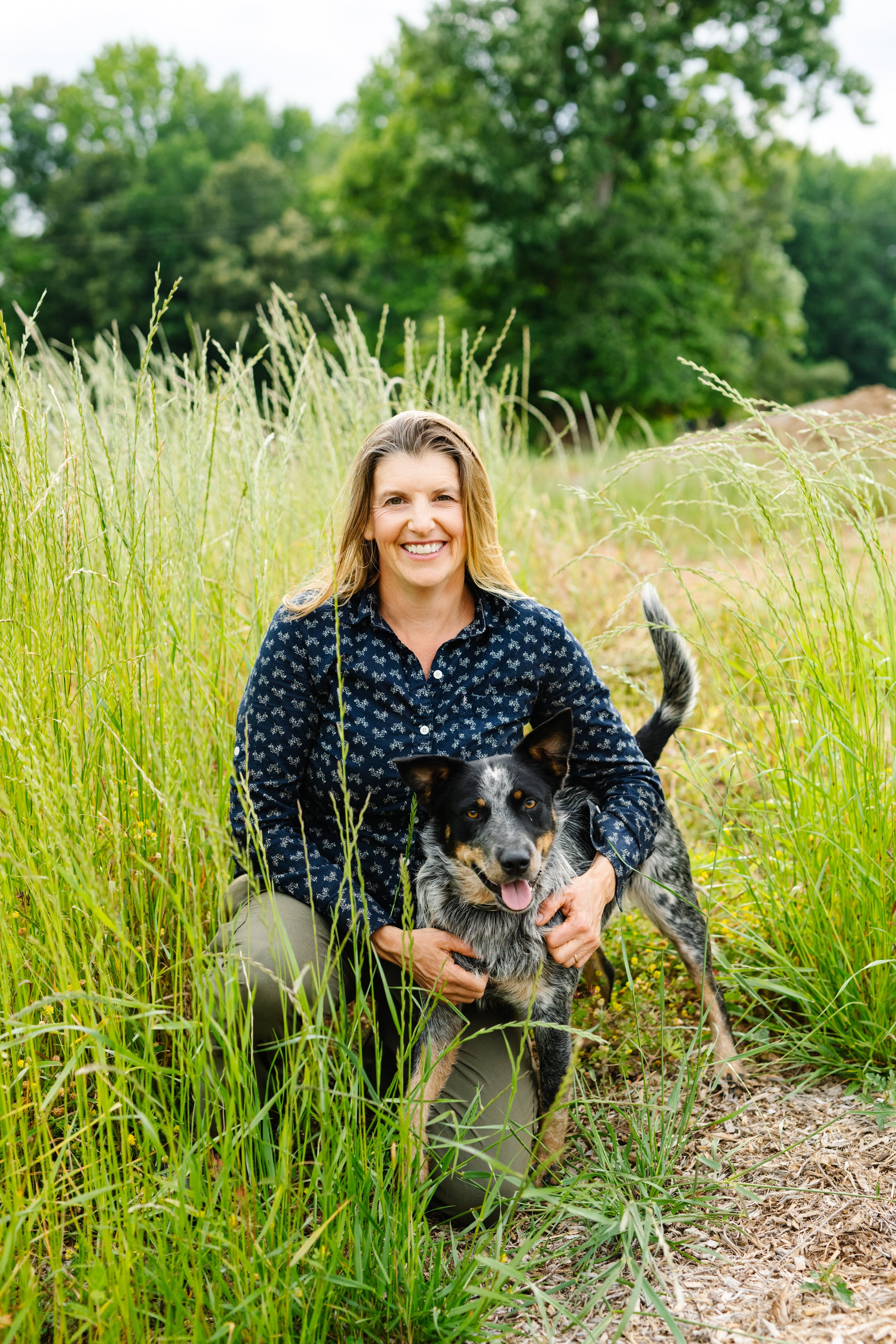THIS PROGRAM REPRESENTS PURPOSEFUL SOWING
Much like the simplicity of planting a garden, the principles of husbandry, growing soil and orchestrating a multi-species pasture symphony are tried and true. Yet the carrying out requires nuance, wisdom, hands-on experience and mentorship. You don’t have the time to learn everything the hard way. That's where Seasoned Shepherd comes in.
Our work is simple, exacting and enduring. And the endurance will leave a mark.
You will be marked with understanding, confidence and hope. Hope has been Reverence Farms’ chief externality for years, and we weren’t even trying to grow anything but food and soil. Hope sprouted anyway.
Our farm’s purpose is fulfilled in your participation in it. We’ve decided that we want our legacy to be your farm dreams coming true. For years we’ve hosted interns, apprentices and veterinary students, but this is a different kind of immersive learning.
For the first time, we are opening up the farm for short-term mentorship with the opportunity to join us later on for even more in-depth programs.
One farmstead like this isn’t going to change the world. But hundreds of us already are.
Dr. Karreman and Suzanne have been dairying on pasture with holistic husbandry for more than 50 combined years. We don’t always agree about everything. We don’t even always agree with ourselves from last year or last month. You will be party to these conversations as we wrestle with what works, what doesn’t, what’s worth pursuing and what is chaff to be discarded.
Once you’ve walked with us side-by-side as we move cows in the parlor to milk or sort off baby calves in the evening, we are forever friends.
Working together is a great equalizer, and the work has a way of forging connections that are foreign to a non-agricultural society.
Your on-farm stay isn't just a visit – it's an immersion into the very soul of farming. And farming, at its core, is about relationship – with each other, the land, the animals and the Creator of all.
Dairying is just like regularly farming with a lot more intimacy.
No one gets under a beef cow’s udder. Yet here is this creature, the dairy cow, that invites close-up encounters. This hands-on, in-the-thick-of-it mentorship is like that in many ways. You'll roll up your sleeves and dive headfirst into the heartbeat of a working dairy that has the some of the realities of commercial farming but the heart of homesteading.
You'll be an integral part of day-to-day tasks at Reverence Farms. Hue manages the parlor and Suzanne the pastures and together they tackle the husbandry. You’ll be up close and in all of it.
You’ll go home confident. Ready. And with friends to lean on.
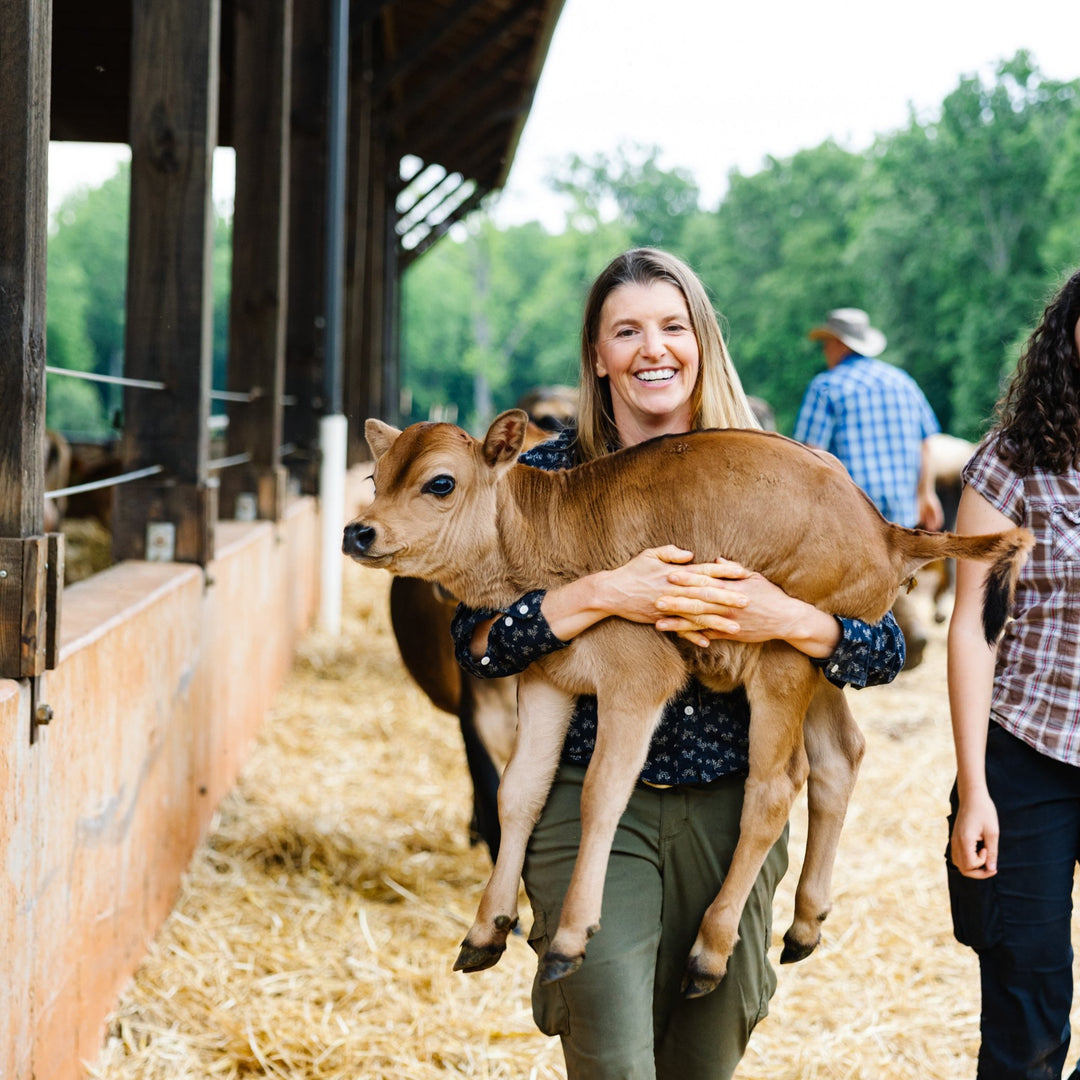
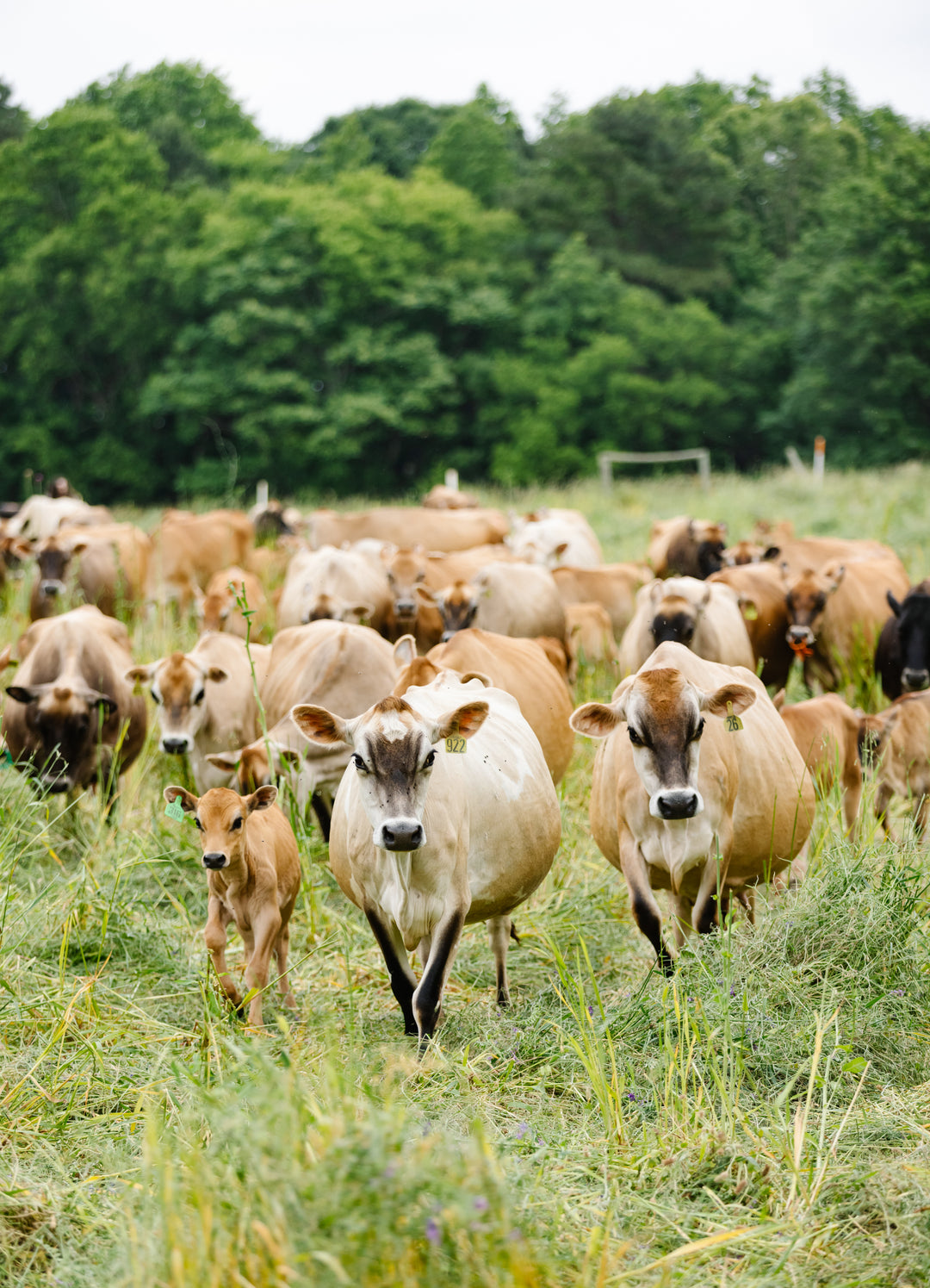
Do you find yourself struggling to navigate the complexities of farming that heals when all you see is broken land, poorly bred animals and systems and infrastructure that are insufficient to hold what you know is true and good and possible?
Are you tired of sifting through endless information, trying to piece together the puzzle pieces and distinctly know that some of the pieces aren’t in your box? Do you wish that you could just ask someone who has been through it all the things so you can build your own dreams without so many hiccups?
Are you ready to cut through the typing warriors with only a few years (or less!) experience regurgitating ideals that you also espouse without the practical experience to back up the philosophies? Can you wait any longer to cut through the noise? Now is your moment.
Confidence awaits — with knowledge you can implement immediately.
What you can expect:
- Learn to tube a calf, IV a cow and reach in a cow. If you are interested in artificial insemination, Suzanne will teach you how she taught herself.
- Hands-on animal husbandry, shepherding, milking and caring for a pastured dairy herd.
- Personalized mentorship from seasoned farmers deeply invested in YOUR SUCCESS.
- Stay on-farm in a crisp and sweet tiny house surrounded by 435 acres of pasture, woods, creek, river and a short trail walk to the village of Saxapahaw, a little town of your local-economy dreams.
- Lunch (on us) with Dr. Karreman and Suzanne.
- Pasture walk with Suzanne one-on-one.
- Time to ask Dr. Karreman questions on animal heath, milking sanitation and veterinary questions.
- Immersive time, quiet time and the ability to see, do and participate in any farming activities that are happening while you are here: if a cow is calving, you are right there. If there is an animal health issue, you are going to help Dr. K treat.
- We are committed to you going home confident and prepared.
Testimonials
Meet Your Mentors
Suzanne & Dr. Hubert Karreman
Suzanne started farming for two simple reasons. It was really homesteading, but that word wasn’t in the public lexicon at that time. She wanted eggs from chickens that ate organic feed and bugs and grass. There was zero organic feed available in the region at the time. And milk from a cow that ate grass and no grain. Little did she know that wasn’t as simple as the grass-reformers wanted everyone to believe. That began a 15-year quest to breed cows up for the job, and learn to regenerate soil sufficient to grow forage to feed them.
She didn’t realize that Jersey cows were, well, sort of addictive. One of her early mentors told her mother that he was afraid that Suzanne “had it bad, and there is no cure.” “What’s that?” her mother replied, genuinely horrified.”Cow fever, ma'am.”
Soon her cow habit enabled her poultry and pig dreams, as a trip to get some Redmond salt for her first cow, Greeley, ended with an alliance with a local organic dairy farmer to mill feed for her chickens (which she had been doing previously with a hand-crank mill with ingredients from the local grocery co-op). He went on to start the first organic feed mill in the area, and now Suzanne could scale-up her layers, broilers, turkeys and pigs. One cow turned into two, then twelve.
That’s about where things were at when she went to an ACRES USA conference in December 2015 and sat in the front row of a talk being given by a person she had long professionally admired and somehow never heard speak: Dr. Hubert Karreman, who had written three books on organic cow care. His very first words to her, notebook on her lap and pen in hand, were: “You’re here to learn.” And she was. But there was something about the way his words trailed off and his eyes looked upwards when he spoke that let her know his basis was deeper than natural treatments for dairy cows.
Caring for God’s creation as individual animals and not just as a herd was their immediate connection. He took her for a horse and sheep person and a “Jersey breeder,” which she rebuffed at the time. Turns out he already knew her pretty well, better than she knew herself.
Five months later they were married. Before the engagement came another real commitment, however, when Hue sent a postcard to his 100+ mostly Amish veterinary clients in Lancaster, Pa., and told him he was closing his practice to farm in NC. “Are you really sure you want to do this?” he asked Suzanne. “Yes!” she said. Ask Hue to tell you about the marmalade eyes in one of the St. Croix ewes that sealed the deal.
The farm is a “full-color” new life for Hue, in his words. He had risen to the top of his profession as the foremost expert worldwide in the non-antibiotic treatment of infectious disease in dairy cattle and the non-hormonal treatment of infertility. He developed and successfully marketed products for organic dairy producers in a time when there were little to no effective treatments that met the no-drug requirements of the then–newly formed National Organic Program.
From 2005 to 2010 he served as the chairman of the livestock committee of the National Organic Standards Board in the U.S. Department of Agriculture. He oversaw much of the implementation of the NOP, and continually and sometimes as a lone voice advocated for animal welfare in the face of consumer-driven standards that didn’t always understand the on-the-farm realities of production agriculture. To this day, one priority that Suzanne and he share is to advocate for the revision of the NOP rule that absolutely prohibits antibiotics, even for sick animals, which punishes farmers for doing right by those in their care and causes untold and needless suffering for the animals.
Hue cut his teeth as the herdsman for Seven Stars Farm, and it was there that he heard an inward call, “Go to vet school.” After graduating from University of Pennsylvania, he moved back near his hometown and practiced for more than two decades among 40-cow herds in Lancaster, Pa. During that time Suzanne was a reporter on Capitol Hill in Washington, D.C., for Roll Call newspaper, which was a subsidiary of The Economist, Inc.
Neither Suzanne nor Hue grew up dairy farming. They like to joke that they now have 60+ pet cows. They were both back-to-the-land-ing when that was much weirder than it is now. They both learned a lot in self-imposed exile. As Hue likes to say, being a pioneer means you see all the sunrises and sunsets but you also get a few arrows in your back. For Suzanne, seeking to milk cows on grass and raise monogastrics on organic feed was not a popular or seemingly sensical choice fifteen years ago. For Hue, maintaining relationships of mutual respect with his veterinary colleagues while also advocating for a very different form of agriculture has at times seemed a bit like professional schizophrenia.
One thing you will notice about Hue and Suzanne right away is their warmth and willingness to build bridges. They believe that farming is commonality enough, and many of their friends farm pretty conventionally. Rural communities are decidedly not rebuilt to endure with philosophies. Rural communities are rebuilt in the doing together.
Suzanne and Hue still love each madly 8 years into their wildly perfect union. Their love of their shared life together reflects on everything they care for — and it’s quite a menagerie. They often laugh about how they should count all their cats and dogs, and sometimes they do… (it’s a lot — and they jokingly asked the local spay and neuter clinic for a punch card).
Their greatest joy is in sharing this life with others, and showing people the goodness of God in the land of the living. Their faith unites them and drives them and grounds them and inspires them. Hope abounds. Service to one another is the currency.
What You'll See...
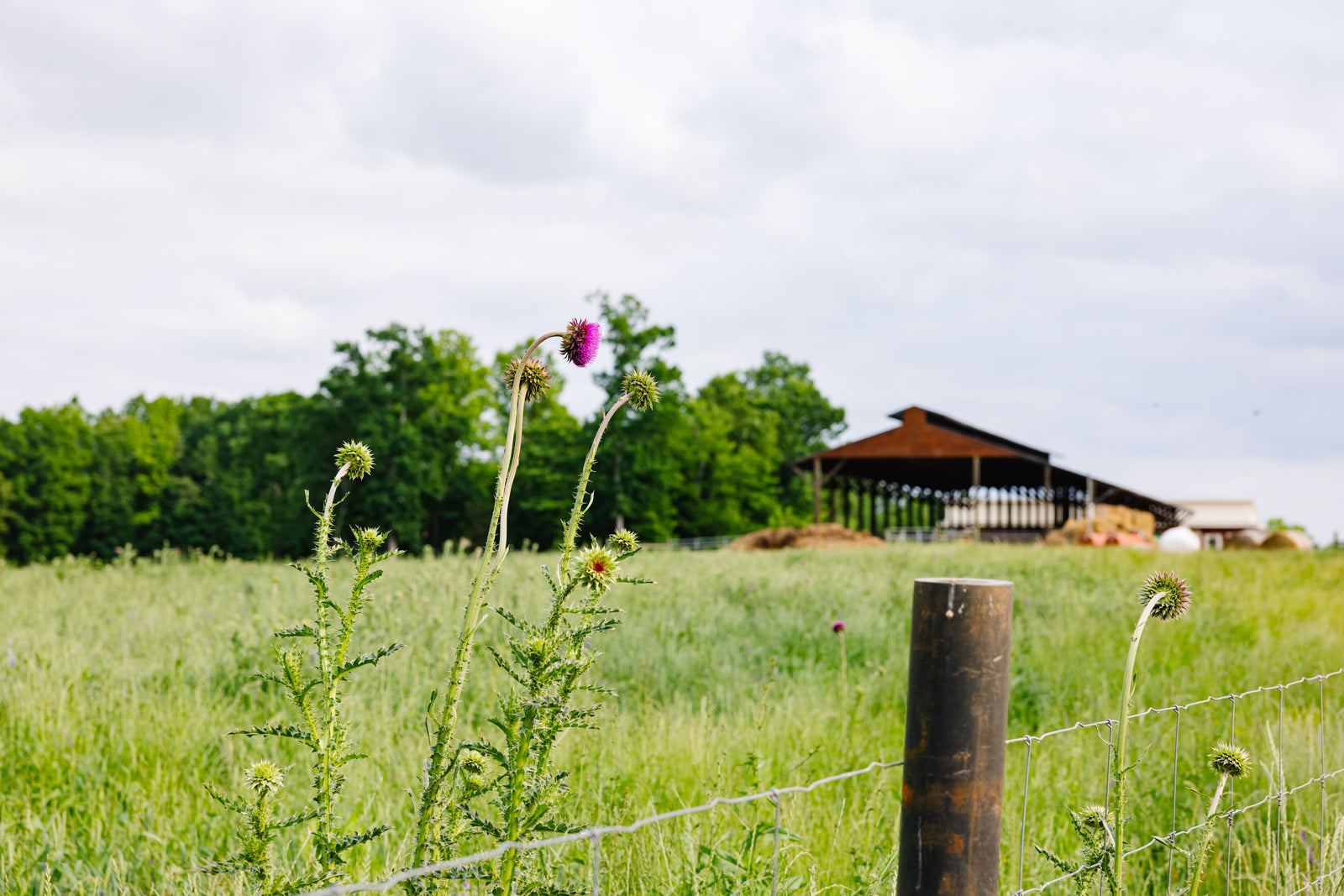
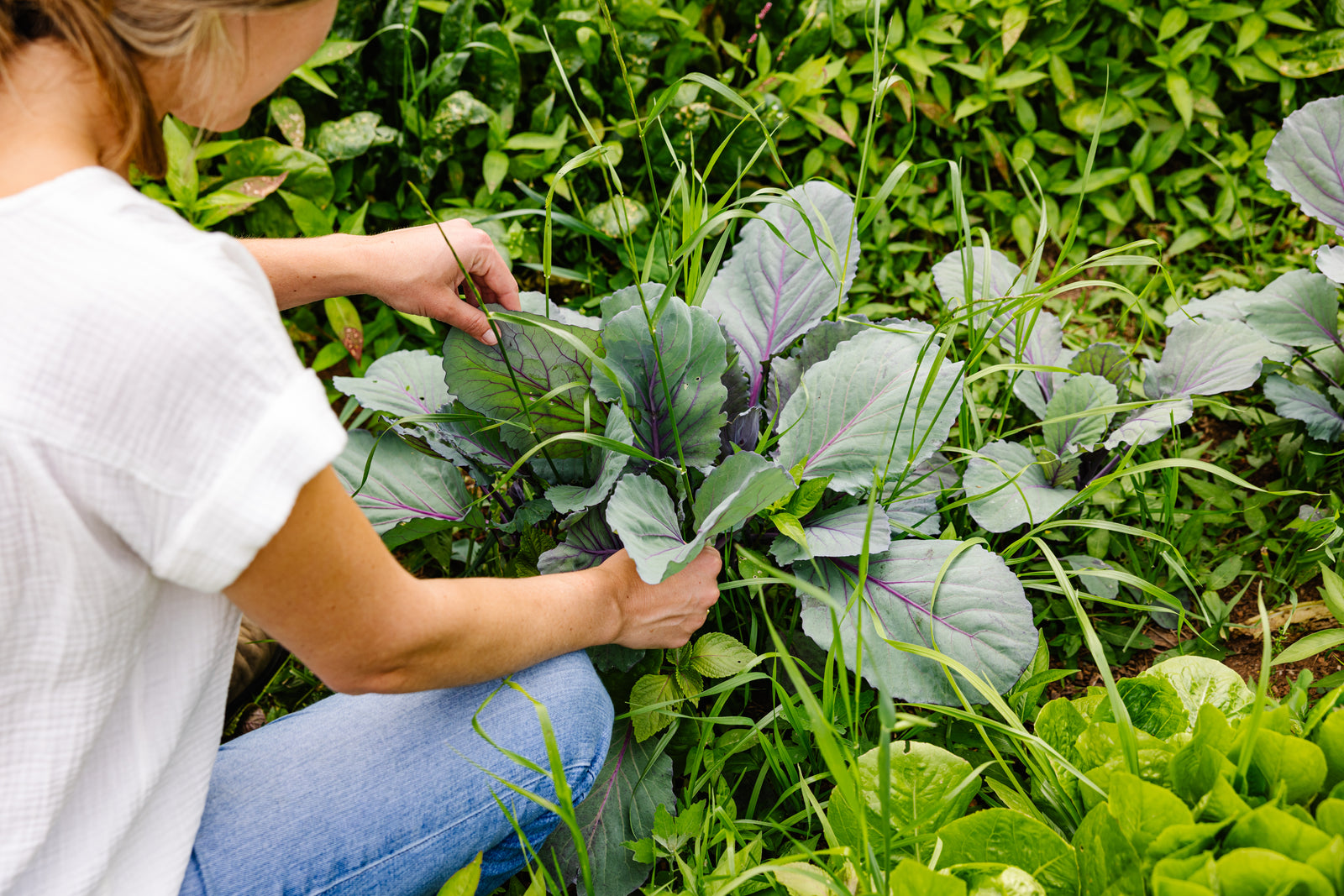
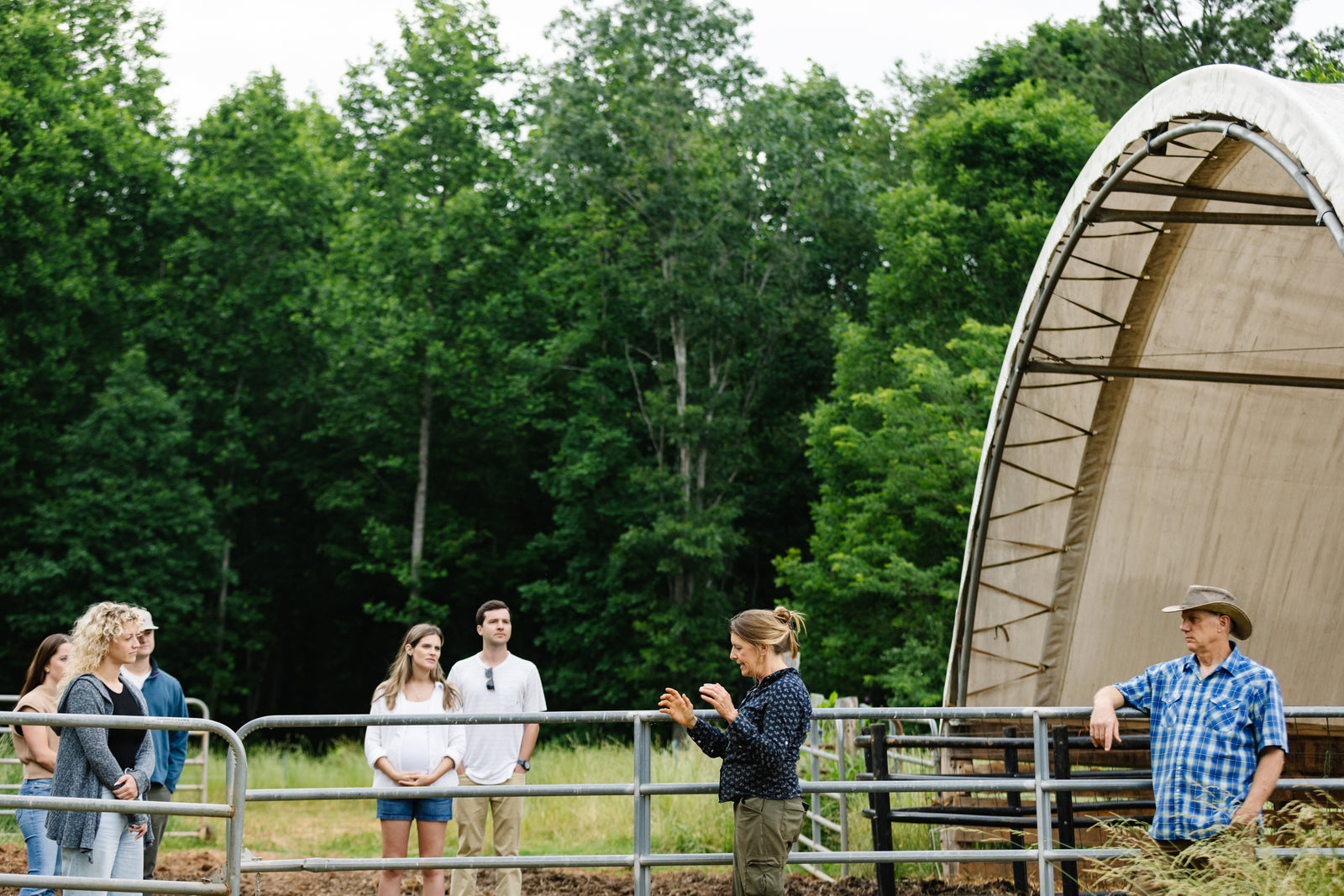
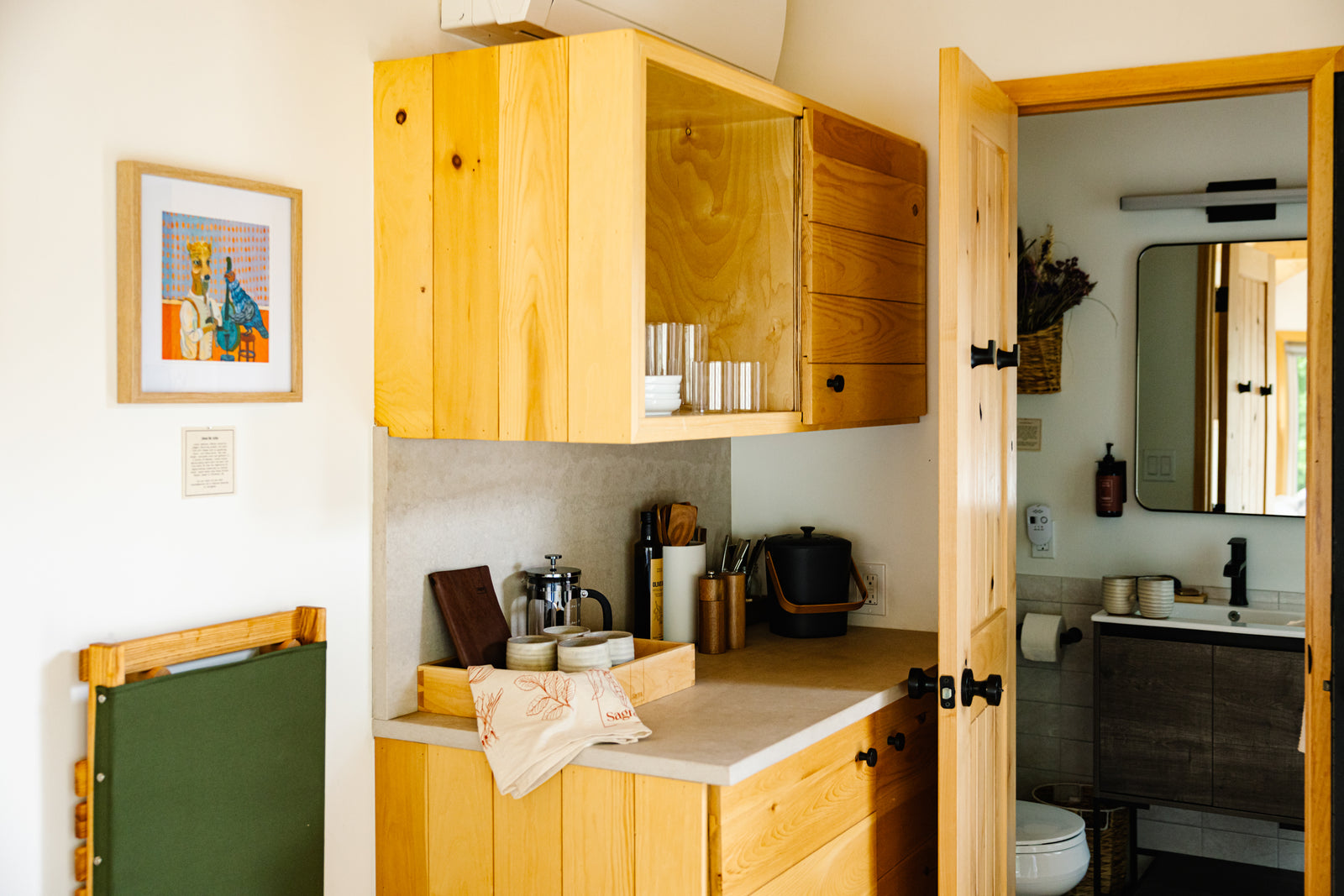
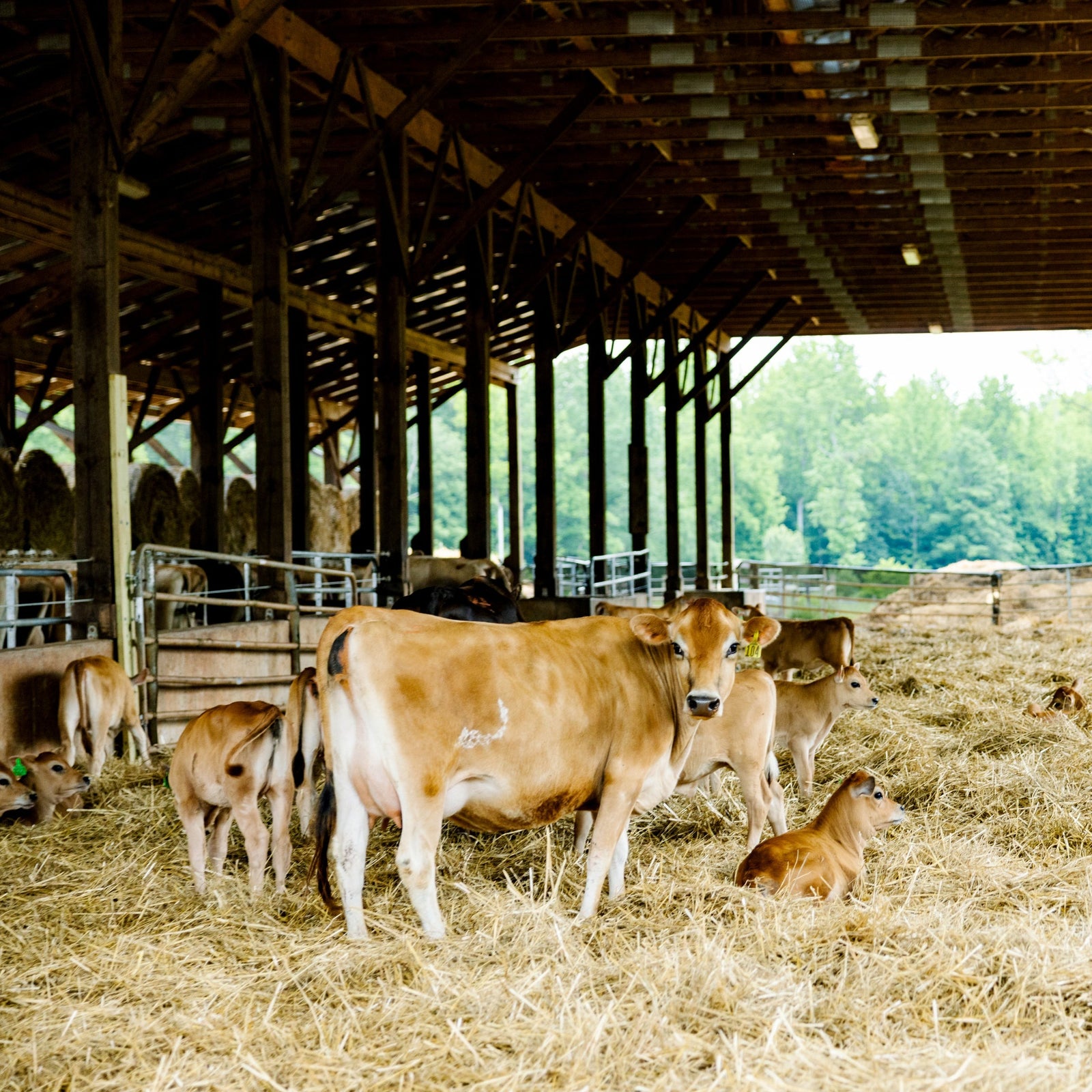

We are decidedly leave-the-99-to-go-after-the-one folks. We believe very much in individual animal care, and treat all life as if it matters, because it does. That means we also believe in investing in individual education. This life is a calling to us, and we know that the only place our treasure can be stored is in heaven, but we’ve chosen to invest our earthly treasure in the soil — purchased compost was our engagement ring, true story! — the creatures that walk on it, our community — and in you. We want our legacy to be the return of dairy as the central pillar of thriving rural communities, with cows that can effectively turn sunshine into butter and fertile pastures that remind us all that we were created in a garden with a purpose.
Here’s to teaching a new generation of teachers. We can’t wait to meet you,
Hue and Suzanne
Example Schedule
Early morning: You are welcome to help milk, walk in the cows from the bedded pack (which we do one at a time so they can nap when they are not "up") and either participate or watch. Milking lasts much of the morning, as we also do some husbandry work during that time. The end of milking is organized chaos as cows and calves reunite and get sorted and out to pasture.
You also have free roam of the place and many find that the work punctuated by river and creek walks is the perfect cadence to soak it all in.
Morning: During milking, in season, there is using a temporary paddock being built, and you are welcome to tag along as we section off the pastures and move waterers to accomplish our managed grazing of several different herds.
Late morning to early afternoon: After milking we send cows out to graze for the day. You will be one of the shepherds. Sometimes that means moving them 2-3 times in a day. Sometimes that means just checking on them and making sure their water is working, they have adequate shade/shelter and the calves are where they are supposed to be.
Lunch: Except on the day you have lunch with Suzanne and Hue, you will be on your own for lunch. There are good local options as well as an ability to cook on a grill outside your tiny home. We provide meat, eggs, butter and there is ample local produce in "town," which is walking distance.
Afternoon: There is some flexibility in the afternoon. Suzanne and Hue usually work in the office or have meetings during this time. You will have a project to work on, and there’s also time for reflection or exploration: trails, pigs, garden, kayak or tube on the Haw River, curl up on a couch in the local coffee shop with a book — Saxapahaw is a very fun little town and you won’t exhaust the local sites in one weekend of even a week. There is always something that needs doing on the farm, however, and you are welcome to stick around and keep your hands in it. We do a lot of later afternoon and evening work, so mid-afternoon is a good time to recharge and eat, as well.
Early Evening: Sometimes we will move the cows one more time in the afternoon, and there is almost always another group of baby bulls or close-up cows to tend to. The general routine is that we sort the babies off the moms at this time. The cows stay in the barn overnight, and the dry cows and heifers are on pasture and usually given another break of grass.
The evening is often a more intimate time. We are often in the barn until around 9pm. It’s important to eat supper before evening chores. The heat of the summer especially means we have to work animals when it’s not so hot. And a lot can happen with dairy cows in 12 hours, so we like to make the time they are alone more like 9 hours. This time in the evening can feel like a fireside chat.
Frequently Asked Questions
Learning is life-long and not just for kids. As more and more people check out of industrialized lives that are no longer serving them, the call for real-life education is as glaringly obvious as is the lack of meaningful places to obtain it. Both people and animals are suffering needlessly for this lack of knowledge. We believe that freely we’ve been given so much from people who have mentored us, and so freely we wish to give.
Nowhere is this need more acute than in so-called “grass-fed” dairy, where market philosophies don’t meet real-life practicalities so well. We want to help bridge what is now a great chasm by empowering you to be a light of hope in your community.
Not exactly. You are paying to stay here. We built our tiny houses originally for agritourism. It cost us a pretty penny and a huge amount of time to install them, and we had plans to rent them out to people coming to visit our tourist town, where there is a dearth of places to stay for concerts and the summer music festival, Saturdays in Saxapahaw
Something didn’t sit right. We know many people want to come here to learn, and we didn’t really want to instead engage with folks who were unengaged with the farm, but just wanting a hip place to stay. The idea of having to explain why we don’t have a Keurig and digging coffee grounds out of the trash so we could compost them (yes, we do stuff like that) didn’t fit our life goals.
We are still trading work for education, as farmers have trained other farmers and tradespeople have been educated (by doing) since the dawn of civilization. The only thing we’ve added is a cool house to stay in — because we recognized you may not be local — because this opportunity is designed to be a fully ON-FARM experience, you will be charged a “boarding” fee.
Most internships or apprenticeships do not allow short-term visits because, frankly, it’s a huge amount of training time for the farmer, and by the time the person gets to be reliable help, the internship is over (the I’ll-train-you,-you-help-me trade is out of balance). Education is expensive and there has to be a balance between the student and the teacher in this way: heavy investment of time in the beginning, long working relationship pays back that investment over time.
That structure may not work for you, however, and you are not alone. Most people who have pivoted their lifestyle and now want to really delve in and learn have too many attachments to go somewhere to be an intern for a summer. Yet the need to learn hands-on is still a big hindrance to forward progress. Hence, the 3 day weekend or 1-2 week internship. We’ve made the price per week less the longer you are here because the longer you stay, the more our investment in you is paid back with your time and efforts while you are here.
Homesteaders, aspiring farmers, and anyone looking to roll up their sleeves and understand pasture management, husbandry, natural and conventional treatments, cow-calf management, milking, infrastructure needs for grazing and organic soil fertility will find a full and rich learning experience. The work is the same daily, but our discussions while we are working will be catered to your interests. Our goal is to send YOU home prepared, armed with information and inspired and hopeful about the future.
The program includes accommodations in a cozy tiny home on the farm, hands-on experience in farm operations, personalized mentorship, meat to cook while you are here, as well as a private lunch with Suzanne and Hue.
Participants will learn about soil health, pasture management, animal husbandry, regenerative farming practices, holistic farm management while actually working on the farm. The work will provide context for our conversations and give you the confidence to readily apply what you have learned as soon as you get back home. We are passionate about sharing our knowledge with others and are committed to helping you succeed.
Yes, you will stay in your own cozy tiny home on the farm, across from the garden, near the cow barn and on the corner of our 435-acre property. Accommodations are included in the program fee.
No prior farming experience is necessary. Seasoned Shepherd is designed to accommodate participants of all skill levels, from beginners to experienced farmers. We will provide personalized guidance and support tailored to your individual interests and skill level.
Participants should bring comfortable clothing suitable for outdoor activities — including clothes for inclement weather appropriate to the season — as well as sturdy footwear, a hat, pocket knife and water bottle. We recommend having two pairs of boots — rubber boots to work in the barn and a more comfortable set of shoes or boots to be in the fields. PLEASE clean your boots before you come.There is high-quality prepared food available for breakfast, lunch and dinner from the Saxapahaw General Store and The Eddy Pub for weekend brunch and dinner, both within walking distance or a one-minute car ride. If you desire to prepare your own meals, you will be responsible for everything except the meat, eggs and milk. Detailed information will be provided upon registration.
Participants are responsible for arranging their own transportation to and from the farm. You do not need a car while you are here. Parking is available outside your tiny house. The unincorporated village of Saxapahaw is about a 15 min walk from your tiny house along a river trail.
A: No.
To view an example schedule, please see above.Reverence Farms is a working dairy farm, so the day-to-day happenings are always different. Things happen without notice, animals need assistance, and farm life is one of surrender and going with the flow. Our primary purpose is like any farmer: we have to do our tasks and pay our bills and hopefully harvest more than we spend.
The advantage to being here is that you get to see the unvarnished view from the inside of a working farm with the realities therein, and as such, the education is likely to be far superior than anything you can get elsewhere. That comes with the reality, however, that our schedule doesn’t cater and flexibility is required. The learning is in the doing, the observing how we respond to things that come up, how we think through planning for the next season while we are focused on executing this season well — and participating in all of it. There’s creativity and mess and slog and moments of exuberance. You are welcome to be with us wherever we are working outside, and see any part of the operation during your stay.
You work with us whenever we are working, as you wish. You'll get at least one walk with Suzanne over the whole farm. Dr. K will answer all of your animal health questions and show you how to do basic, life-saving treatments like tubing a calf, IVing a cow, putting in a nose ring, taking a blood sample and "bumping" a calf. You can even reach in a pregnant cow to feel the calf internally under direction. Our mission is to send you home confident and prepared. It's something we take really seriously.
No. You have access to a hot plate in your tiny home, where you can cook all of your meals. We will provide eggs, beef and pork as well as milk on the farm, as well as one lunch at the Saxapahaw General Store with Suzanne and Hue. Beyond this, you are responsible for your meals and any other foods you may want. The tiny home has a small fridge.
No, all on-farm mentorship spaces are non-refundable. However, we understand that life happens and schedules change. If this is the case, please reach out to us at least four weeks in advance so we can see what accommodations we can offer.
Yes, although this opportunity is designed to be a fully immersive experience. It's not just learning here but being here that is transformative for many.
You can bring up to 3 additional people to participate in The Seasoned Shepherd Mentorship Program, for a total of 4 participants including yourself (pending lodging availability). Each of the two tiny homes can accommodate 2 people (one queen bed per home). If your group has more than 2 participants you will need to pay the booking fee for both tiny homes.
The Seasoned Shepherd program is designed for people 18 and over, however we will consider children 11+ on a case by case basis. If you would like to bring them along, please contact us.
If you have any further questions or would like more information about Seasoned Shepherd, please don't hesitate to contact us. We're here to help!
Have more questions?
Feel free to reach our to our team if you have further questions! We would be happy to assist!
















